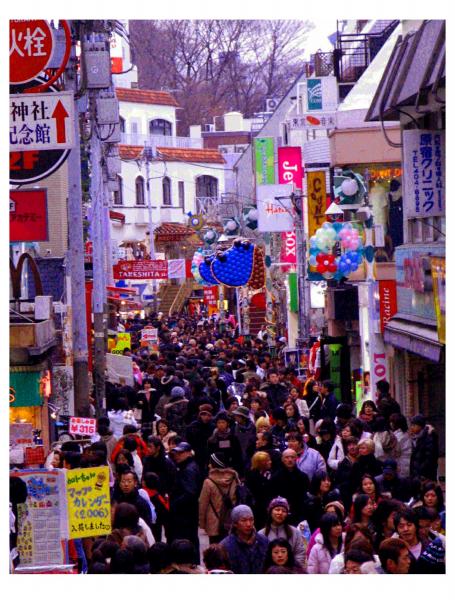 Why Are There Small Shops in Japan?
Why Are There Small Shops in Japan?
One of the peculiarities of Japanese society, and an aspect that struck me as an indication of the way the economical and cultural aspects merged as one was in the form of the multitude of small shops found in Japan. In addition to issues such as a lack of space and funding for large Japanese provider powerhouses such as Ito Yokaido, the popularity of choosing to run a smaller shop also plays a large part in the aspect of leisure in the Japanese culture. During the classroom’s fieldwork in Kichijioji, spending some time in an area highly concentrated with small shops revealed a lot of interesting aspects in each one that separated them from the rest, even if within the same genre of food or item. In every small shop, I was able to find a reason as to what separated any particular store from the rest.
In the article we read in preparation for our fieldwork, the author made mention of the strong cultural importance presented in the relationship between these small shops in the leisure time taken by Japanese on Sunday. The author followed on by staying that this relationship not only aids the economy but because there exists an abundance of smaller shops instead of one or two big markets, small shops can be easily accessible to most Japanese homes, allowing other traditions such as making food from freshly bought ingredients every day. When I reflected on this aspect and compared it to the American habit of buying this in bulk, it made me appreciate the benefits of smaller shops in Japanese culture. Because in America, the idea of buying everything in bulk benefits the consumer (for example lower gas prices) I wonder if the idea of smaller shops would be of any use to American culture at all.
I believe that smaller shops also encourage the economy in Japan for several different reasons. Firstly, smaller shops provide a variety of goods whose selling point could be its uniqueness. For example, in Harajuku, the small shops found on Harajuku Street and the surrounding area is particularly famous for the uniqueness of fashion found in each store. Secondly, since large stores are rare, monopolies on certain items is rare allowing for fairer competition in the market. Thirdly, the creation of small shops aids families as a source of personal income if they are selling something that appeals to the market instead of cowering under larger names that have already been established as the go to place for XX item. Fourthly, the creation of smaller shops allows for more job positions to be available in turn aiding the unemployment rate.
In conclusion, I am not sure whether these small shops are a greater aid to the cultural or economical aspect of Japanese culture, since I am not well versed in Economics to analyze the relationship between economical growth and shops however I am convinced that these two aspects play hand in hand, creating an even greater interest in the way these small shops will evolve and become even more important after the complications that occurred due to the devastating events in March. I think the way the economy responds to small shops during this time that will determine for sure the impact and true cultural connotations of the small shop.